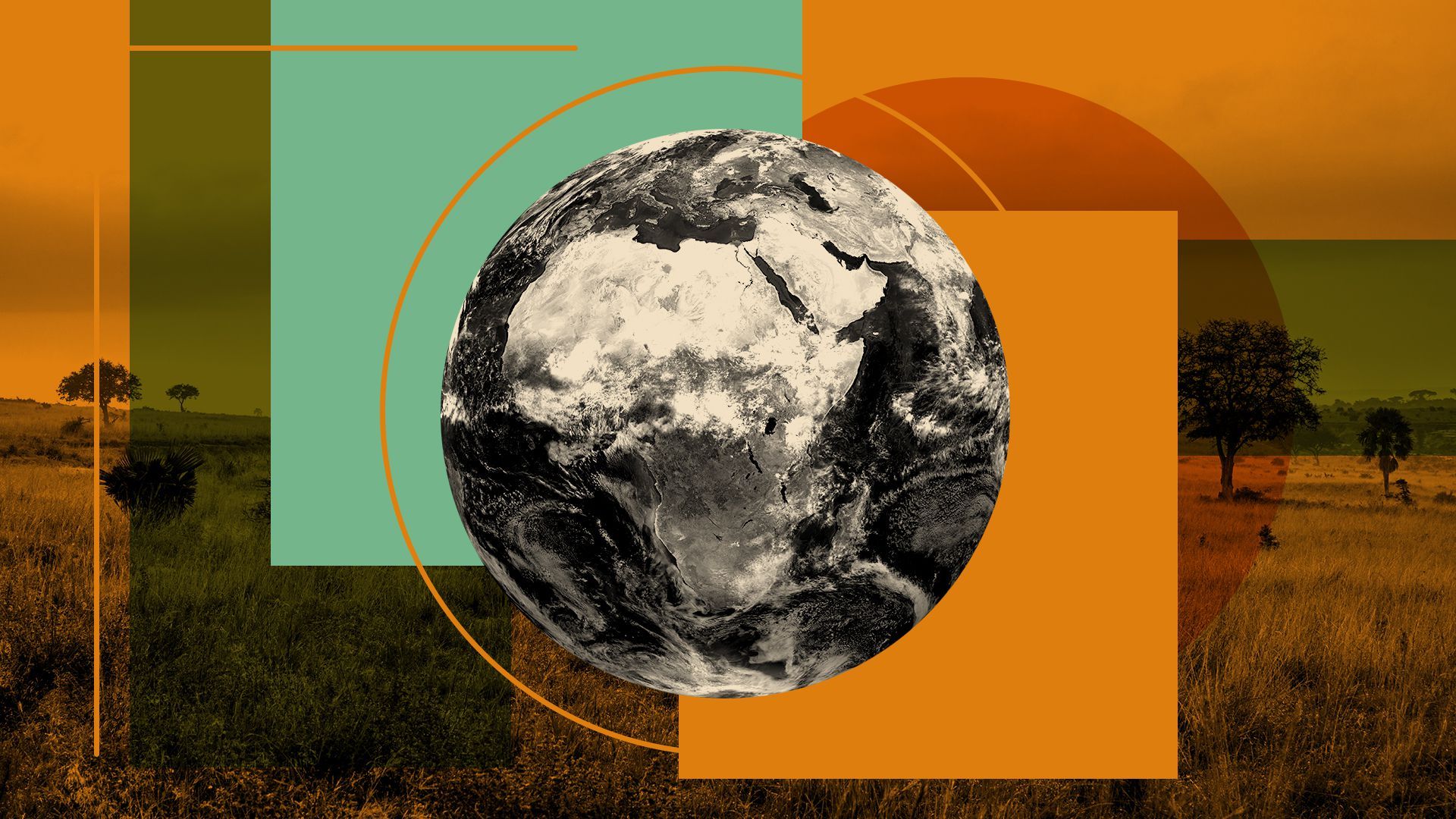The COP27 agenda for young African climate activists
Add Axios as your preferred source to
see more of our stories on Google.

Illustration: Annelise Capossela/Axios
Young activists from African nations are attending the COP27 climate summit to push for solutions to the climate issues burdening the countries that contribute the least to climate change.
Driving the news: Whether or not wealthy countries should help foot the bill for climate damages in highly vulnerable nations is one of the defining issues at this year's summit.
- Now, youth climate activists from nations across Africa are calling for the polluting countries responsible for the bulk of global emissions to pay up.
What they're saying: Nyombi Morris, a 24-year-old Ugandan climate justice activist at COP27, wants to see actual "loss and damage" financing — compensation for vulnerable nations that are being hit hardest by climate change — come out of the summit.
- Climate-fueled food insecurity is affecting millions across Africa, which Morris is seeing firsthand in Uganda.
- "We always depend on farmers to survive, so we need the loss and damage finance to help us to set up food reserves for our people," Morris told Axios.
Context: In Uganda, one issue is extreme weather-related constraints to food production, while food accessibility is another.
- Rapid population growth, conflict and corruption have meant that even as poverty rates have declined, the proportion of Ugandans experiencing shortages of basic life necessities — like not having enough food or water — remains high, according to the Lived Poverty Index.
- Uganda's population growth is being compounded by a rise in refugees in East Africa. Some are being internally displaced by disaster-related climate impacts like intensified drought and floods, according to Morris.
- Over the last year, 19 nations or territories have experienced double-digit percentage growth in the populations facing the three most severe phases of acute food insecurity, concentrated in East Africa, West Africa and North Africa's Sahel, according to a 2022 Food Security Information Network report.
- "You saw over 30 million people get displaced in Pakistan. You saw 1.4 million people in Nigeria displaced. So what is happening now in the Philippines, what is happening in Bangladesh, what is happening in Uganda, starvation in the Horn of Africa, all of these need to be worked on," Morris told Axios.
Other youth activists at COP27, like 25-year-old Vanessa Nakate, also from Uganda, share a similar take.
- In a speech Wednesday at COP27, Nakate said countries with fewer resources cannot rebuild from extreme weather events "they have not caused" without money to help them to do so.
- "We need rich countries ... to start paying money for the loss and damage fossil fuels have caused," Nakate said.
- 20-year-old Eric Njuguna, Youth Climate Justice organizer with Fridays for Future Kenya, said financing is needed for the "millions" of Kenyans facing hunger due to severe drought and climate impacts on livestock.
- "Climate justice is food justice," Njuguna said.
State of play: Loss and damage financing is on the official summit agenda, with Austria, Ireland, Germany and Belgium pledging financial contributions for developing countries, joining previous pledges from countries like Scotland and Denmark.
- On Tuesday, the president of the European Commission backed advancing the idea of new funds for loss and damage payments, as reported by the New York Times.
- China's climate envoy, Xie Zhenhua, said Wednesday that the country is willing to support a funding mechanism, but a spokesperson from the delegation later clarified that China does not plan to contribute financially, Reuters reports.
- And the U.S. has indicated support for discussing the agenda item, but has not committed to a funding mechanism. U.S. special climate envoy John Kerry was careful only to pledge continuing dialogue about it throughout COP27.
The bottom line: As far as youth climate activists like Morris are concerned, actual climate damage funding coming out of the summit — not just dialogue — is crucial for the survival of many across the African continent.
- "When we are talking about climate reparations, we are acknowledging that most of the challenges we are going through have been fueled by the Western world," Morris told Axios.
